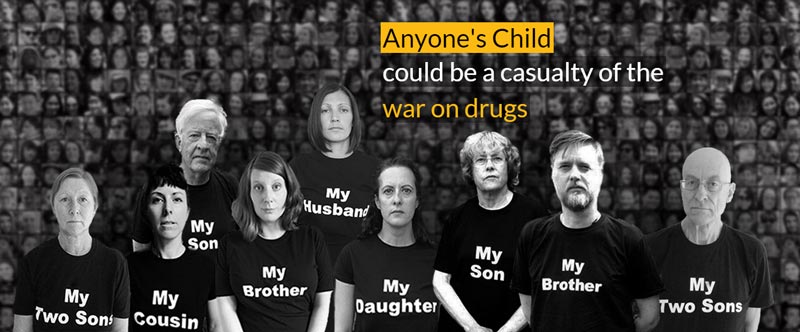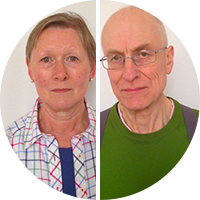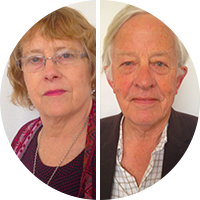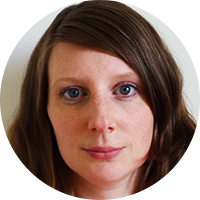Strictly embargoed until 00.01 Tuesday, 14 July, 2015
On Tues 14 July at 1.30 pm a new network of families whose lives have been wrecked by our current approach to drugs will hand in a letter to 10 Downing Street calling for the legal regulation of drugs. Anyone’s Child: Families for Safer Drug Control is a project supported by Transform Drug Policy Foundation.
A spokesperson for Anyone’s Child said:
“Our vicious and stupid drug laws don’t stop young people from taking drugs. But putting dangerous criminals in charge has devastating results for them and their families. In 2002 David Cameron called for a debate on legal regulation. Since then, there have been over 26,000 drug deaths in the UK – compared with 453 UK soldiers in Afghanistan. Enough is enough. He should immediately commission an independent review of our drug laws. The government knows the evidence proves that legally regulating drugs would help protect all our families.”
Read the families’ letter to David Cameron >
Family quotes:
1. Anne-Marie: “My only child might still be alive if ecstasy was regulated.” Watch Anne-Marie’s video
“On 20th July, 2013, I received the phone call that no parent wants to get. The voice said that my 15-year-old daughter was gravely ill and they were trying to save her life. On that beautiful, sunny Saturday morning, Martha had swallowed half a gram of MDMA powder (more widely known as ecstasy) that turned out to be 91% pure. Within two hours of taking it, my daughter died of an accidental ecstasy overdose. She was my only child. “Martha wanted to get high, she didn’t want to die”. All parents would prefer one of those options to the other. And while no one wants drugs being sold to children, if Martha had got hold of legally regulated drugs meant for adults, labelled with health warnings and dosage instructions, she would not have gone on to take 5-10 times the safe dose.
“When I hear that a young person has died and yet another family has joined the bereaved parents’ club, I feel helpless as I wonder how many more need to die before someone in government will actually do something about it? As I stand by my child’s grave, what more evidence do I need that things must change? Isn’t this loss of precious lives an indicator of a law that is past its sell-by date and in need of urgent reform? A good start would be to conduct the very first proper review of our drug laws in over 40 years and to consider alternative approaches. But the people in power turn away from it.”
2. Rose and Jeremy: “We lost two sons to heroin because of the drug war”
“We live in Bromsgrove, Worcestershire. The youngest of our three children, Roland, died aged 23, in 2003. My middle son and stepson to Jeremy, Jacob (Jake), died aged 37, in 2014. Both from drug overdoses. Having ‘Just say no’ conversations about drugs when they were young teenagers hadn’t worked. These intelligent boys wrecked their school careers and continued on downward paths, eventually becoming heroin addicts. The idea of what the drugs laws might do to them didn’t stop them.The war on drugs failed our boys.”
3. Cara: “I lost my partner, and my son lost his father, because heroin users are criminalised” Watch Cara’s video
“When our drug laws harm an individual, they also harm the entire family. Jake was not just Rose’s son and Jeremy’s step son, he was my partner, and the father of our son too. He was also an artist, a poet, a dancer, a writer, a nursery nurse and soon to be a fully qualified art psychotherapist. He loved to make people laugh. He told me when we first met that he had started to abuse alcohol and other drugs at a young age. He told me that as a teenager he’d been, caught, named and shamed in his local paper. Being labelled ‘a hopeless druggie’ helped send him further into substance abuse. Despite being exceptionally bright, Jake’s teenage dabbles culminated in a crack and heroin habit. In April 2014, he relapsed again – and this time, it killed him. Jake was a beautiful soul. He was a fantastic father.
“I believe that if Jake’s drug use could have been treated as the medical issue it was, rather than the criminal issue it wasn’t – he would still be alive today. If his drug of choice had been legally regulated, he could have sought help without fear of punishment. Father, partner, brother, uncle, son, grandson, friend and colleague. The world is not a better place for the loss of Jake Coe.
“If there’s a chance my son will want to experiment with drugs other than alcohol, I want him to be able to do it safely. I don’t want his entire future to be ruined for the sake of a silly mistake or even a series of them. I’d rather he went to a licensed supplier than to a street dealer who could be selling him literally anything. I’d rather those drugs were properly researched and manufactured. I’d rather he had access to truthful and unbiased information about what exactly he was doing to himself. He has already paid too heavy a price of drug policies that are hinged on ‘just say no’. Our drug policies have failed. They do more harm than good. They protect no one.”
4. Mick and Hope: “Our son’s life has been blighted by the drug laws”
“Our son James was in his second year at Manchester University when it happened. We’d just come back from the local supermarket, when the phone rang, and our lives were changed forever. James was at a police station on a drugs charge. Neither of us knew much about illegal drugs, and I shudder now to think how ignorant we were.
“James had taken his turn to get cannabis and ecstasy for his household of adult university friends. He made no profit but the drugs were cheaper if you got enough to last the term. They were in a bowl in the communal sitting room from which they all helped themselves. But James had told the truth about being the one to get them that time. Ecstasy is a class A drug and the law does not differentiate between a feckless student and a drug dealer. Prison is the only outcome for the intent to supply a Class A drug. When he got to Strangeways his cellmate was a Moss Side gangster who had chopped off the fingers of one of his victims, and stabbed a man in the heart.
“After he came out of prison having served 15 months of his two-and-half year sentence he went back to study. But James’s life has been blighted. No one could avoid being scarred by what he has experienced. And he still has a criminal record that has affected his career prospects. Despite his Masters Degree, he now sells carvings by the roadside. When something so unjust happens, if it doesn’t destroy you, you want to do something about it. So our family began to fight for an end to these cruel and draconian laws so others won’t be afflicted in the same way. But for now, what happened to us could happen to you.”
5. Katrina: “My brother was marginalised and then murdered because of the drug war”
“After spending all my life and most of his occupying the role of wee sister, it is a strange reality that I’m now older than my big brother. He never made it to his 30th birthday. Never becoming an uncle to my daughter, whom he would have adored, is the saddest loss of all. Though I think I had expected to lose him. Alan had been a heroin user for over ten years. And because, as we are so often told, drugs are dangerous, wicked and bad, I presumed he’d die from an overdose or a batch of bad heroin. In fact it was the illegality of his addiction that left us helpless, and pushed Alan to the edge of society, into a world of violence and danger that took his life. That’s what happens to drug users after all. But I never imagined he would be murdered.
“In short, prohibition doesn’t work. It instantaneously criminalises people who choose to use drugs. It keeps drugs in the hands of unscrupulous dealers, puts people at risk and creates chaos. I strongly believe that my brother would be alive and enjoying his niece if he had had access to safe, regulated and controlled drugs. I don’t want any other family to go through the ongoing, drawn out devastation of losing a loved one the way we did: watching them spiral in and out of control, fearing for their existence every day, but feeling helpless. It’s exhausting, all consuming and ultimately avoidable with a change to the law. The current system isn’t working. We must look for a real alternative that helps drug users and their families.”
Contact: Martin Powell, +44 (0)7875 679 301 martin@tdpf.org.uk / Danny Kushlick, +44 (0)7970 174 747 danny@tdpf.org.uk
ENDS
Notes for editors (website and all materials embargoed until 00:01 14/07/15)
1. For more on the families’ stories see the briefing Anyone’s Child: Human Stories from the UK Drug War at http://www.tdpf.org.uk/anyones-child-press-resources
2. To see the website and videos visit www.anyoneschild.org
3. Anyone’s Child letter to the Prime Minister at: http://www.tdpf.org.uk/anyones-child-press-resources
4. In 2002 David Cameron was on the Home Affairs Committee when it held an inquiry into UK drug policy, and voted for recommendation 24:“We recommend that the Government initiates a discussion within the Commission on Narcotic Drugs of alternative ways—including the possibility of legalisation and regulation—to tackle the global drugs dilemma (paragraph 267).” http://www.publications.parliament.uk/pa/cm200102/cmselect/cmhaff/318/31815.htm
5. The Home Office International Comparators report on approaches to drugs around the world concluded: “Looking across different countries, there is no apparent correlation between the ‘toughness’ of a country’s approach and the prevalence of adult drug use.” https://www.gov.uk/government/uploads/system/uploads/attachment_data/file/368489/DrugsInternationalComparators.pdf Numerous other studies, including by the World Health Organization, have come to the same conclusion.
6. UK drug deaths: 2002-2013, 21,048 in England and Wales http://www.ons.gov.uk/ons/publications/re-reference-tables.html?edition=tcm%3A77-375474 , 5,562 in Scotland, p. 40: http://www.nrscotland.gov.uk/files//statistics/drug-relateddeaths/2013/drugs-related-deaths-2013.pdf







Leave A Comment